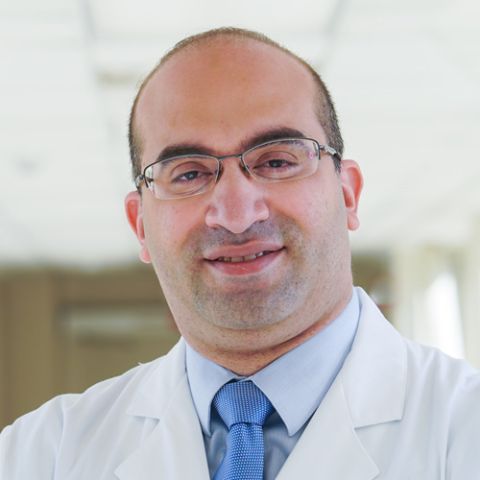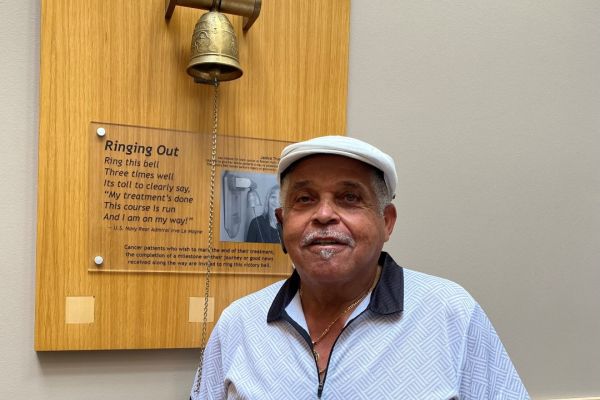Alcohol might delay accurate diagnosis
If you are monitoring your prostate specific antigen (PSA) level to screen or monitor prostate cancer, you might want to avoid having a beer — or glass of wine or other alcohol — before the next test. Alcohol might affect your PSA level and potentially delay or mask an accurate diagnosis.
“It’s very important to avoid anything that can affect the PSA,” says urologist Ahmed Aly, MD, of Roswell Park Comprehensive Cancer Center.
“Just the PSA on its own can fluctuate. There are things we don’t have any control over, like inflammation of the prostate, the size of the prostate, or the intake of some medications, but there are other things that we ask patients to avoid such as sexual activity, bike riding, strenuous physical activity, alcohol consumption and others.”
Prostate cancer is the second most common diagnosed cancer in men, and one of the leading causes of cancer death in men in the United States and around the world. In men and individuals assigned male at birth, the prostate gland is located between the bladder and rectum. It is typically about the size of a walnut and produces a fluid that protects sperm. PSA, a protein found in the fluid produced by the prostate, liquefies semen to help sperm move more freely. While PSA is primarily found in the prostate, a small amount also circulates in your bloodstream, which is why a blood test can measure your PSA level.
Elevated PSA levels in your bloodstream can be an indicator of prostate cancer. Alcohol might affect PSA level, likely lowering it, which may delay diagnosis or underestimate the aggressiveness of the cancer.
“If the test comes back out of the trend for that patient, even sometimes when it’s higher, we don’t rely on a single elevation of PSA. We always get a confirmatory level to make sure this is an actual change before we start acting,” Dr. Aly says.
Alcohol use and cancer
When it comes to the prevention and management of prostate cancer, Dr. Aly recommends that people learn about the potential connection between drinking alcohol and cancer in general.
Alcohol consumption is a well-established risk factor for many other cancers, such as those of the pharynx, larynx and esophagus — and chronic alcoholism is an acknowledged predisposition of pancreatic cancer diagnoses.
You have time for a second opinion
If you have a suspicion or diagnosis of prostate cancer, you need a second opinion. We will ensure you get it without delay.
Drinking and your risk for prostate cancer
Other research links heavy drinking to increased prostate cancer risk.
“Two studies show that heavy drinkers are less prone to get PSA screening,” Dr. Aly says. “So definitely men who are heavy drinkers are at the highest risk of developing more aggressive (prostate) cancer, not only because of the effect on the PSA itself, but also because they might not be involved in the screening process, and therefore cancer might be missed until it is more aggressive, or at a more advanced stage.”
For men, heavy drinking is considered consumption of 5 or more drinks on any given day, or 15 or more drinks a week; for women it’s 4 or more drinks in a single day, or more than 8 drinks a week, according to the National Institute on Alcohol Abuse and Alcoholism. A standard drink is defined as 1.5 ounces of distilled spirits (e.g., vodka, whiskey or gin), 5 ounces of wine, or 12 ounces of beer.
“If the patient is a heavy drinker, for example, and they have prostate cancer and they need to undergo surgery, it can affect their healing, their convalescence and their recovery,” explains Dr. Aly. “We advise them of course to try to stop or limit drinking. But for some people this is a big problem, so we always try to help if they need a referral to somebody that can help with this problem. Then we just continue to monitor their PSA levels religiously to make sure that we have an accurate reading of that level.”
PSA screening is a prevention route
Dr. Aly stresses the importance of PSA screening in the prevention and management of prostate cancer. “Screening might not be able to prevent prostate cancer, but what we can do is prevent it from causing death or affecting the quality of life,” he says, recommending that all men 45 and older should be screened according to their doctor’s recommendations, and African Americans, Ashkenazi Jews and individuals with a strong family history of cancer should begin prostate cancer screening at age 40.
Not all cases of prostate cancer will need treatment, and your doctor may advise a plan of active monitoring of your PSA level. If you do need treatment, Roswell Park can help.
“We are a comprehensive cancer center so by definition cancer is what we do. “Whether you have a simple or a more complicated case, every patient receives the same multidisciplinary evaluation and treatment planning by our team, which includes surgeons, like myself, and experienced, dedicated radiologists, pathologists, radiation oncologists, and patient advocates,” says Dr. Aly.
“We offer all different kinds of management options, from active surveillance to robotic surgery, cutting-edge radiation, focal therapy such as high-intensity focused ultrasound and clinical trials of the newest treatments.”




